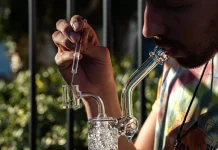The manufacturing of Active Pharmaceutical Ingredients (APIs) is a critical component of the pharmaceutical industry. As the backbone of drug production, APIs are essential for creating effective medications. This guide explores the latest trends and technologies in API manufacture, highlighting how advancements are shaping the future of pharmaceuticals.
Introduction to API Manufacture
API manufacture involves the production of the active component of a drug that produces the intended therapeutic effects. This process is complex, requiring stringent quality control and adherence to regulatory standards. The increasing demand for high-quality drugs has spurred innovation in API production, leading to significant advancements in the field.
Current Trends in API Manufacture
1. Continuous Manufacturing
Continuous manufacturing has revolutionized the API production process. Unlike traditional batch processing, continuous manufacturing allows for the uninterrupted production of APIs. This method improves efficiency, reduces production time, and enhances the overall quality of the product. Additionally, continuous manufacturing is more cost-effective and can better meet the demands of the market.
2. Green Chemistry
Sustainability is becoming a crucial focus in API manufacture. Green chemistry principles aim to reduce the environmental impact of chemical production. By utilizing safer solvents, renewable raw materials, and energy-efficient processes, the pharmaceutical industry is moving towards more sustainable practices. This not only benefits the environment but also reduces production costs and improves regulatory compliance.
3. Advanced Analytical Techniques
The integration of advanced analytical techniques has significantly improved the precision and efficiency of API manufacture. Technologies such as High-Performance Liquid Chromatography (HPLC), Mass Spectrometry (MS), and Nuclear Magnetic Resonance (NMR) spectroscopy allow for better characterization and quality control of APIs. These techniques ensure that the final product meets the required standards of purity and potency.
Emerging Technologies in API Manufacture
1. Artificial Intelligence and Machine Learning
Artificial Intelligence (AI) and Machine Learning (ML) are transforming API manufacture. These technologies can predict and optimize production processes, identify potential issues before they occur, and streamline quality control. AI and ML can analyze vast amounts of data to enhance decision-making and improve efficiency in API production.
2. 3D Printing
3D printing, or additive manufacturing, is making its way into API production. This technology allows for the precise fabrication of complex API structures, enabling customized drug formulations. 3D printing can also reduce waste and lower production costs by using only the necessary amount of raw materials.
3. Biocatalysis
Biocatalysis involves using natural catalysts, such as enzymes and cells, to accelerate chemical reactions. This method is gaining popularity in API manufacture due to its specificity, efficiency, and environmental friendliness. Biocatalysis can produce APIs with high purity and yield, making it an attractive alternative to traditional chemical synthesis.
Challenges in API Manufacture
Despite the advancements, API manufacture faces several challenges. Regulatory compliance remains a significant hurdle, as the industry must adhere to stringent guidelines to ensure product safety and efficacy. Additionally, the complexity of API synthesis and the need for continuous innovation require substantial investment in research and development.
Future Prospects of API Manufacture
The future of API manufacture looks promising, with ongoing advancements in technology and a growing emphasis on sustainability. The integration of AI, continuous manufacturing, and green chemistry principles will continue to drive efficiency and innovation in the industry. As these trends evolve, the pharmaceutical industry will be better equipped to meet the increasing demand for high-quality, affordable medications.
Conclusion
API manufacture is at the forefront of pharmaceutical innovation, driven by emerging trends and technologies. Continuous manufacturing, green chemistry, advanced analytical techniques, AI, 3D printing, and biocatalysis are shaping the future of API production. Despite the challenges, these advancements offer exciting prospects for improving the efficiency, sustainability, and quality of API manufacture. As the industry evolves, it will continue to play a crucial role in delivering effective and safe medications to patients worldwide.




